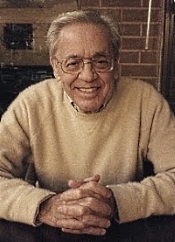 English composer Gustav Holst (1874-1934) began writing his most-famous piece of music, the seven-movement orchestral suite The Planets, between 1914 and 1916, the years of "The Great War," which may help to explain why the first two segments are about "War" and "Peace." He named each movement after the astrological sign of a known planet at the time, not counting Earth, although the music doesn't really describe the signs or the planets so much as they express feelings about the human spirit in its various moods.
English composer Gustav Holst (1874-1934) began writing his most-famous piece of music, the seven-movement orchestral suite The Planets, between 1914 and 1916, the years of "The Great War," which may help to explain why the first two segments are about "War" and "Peace." He named each movement after the astrological sign of a known planet at the time, not counting Earth, although the music doesn't really describe the signs or the planets so much as they express feelings about the human spirit in its various moods.In any case, the composer asked his friend Adrian Boult to conduct the premiere, which took place in 1918. For the next seventy years Sir Adrian would re-record the work regularly, his final disc for EMI in 1979 my own favorite. One could say, therefore, that Boult was the ultimate authority on the subject; however, I actually like Andre Previn's EMI recording of it even more than any of Boult's, so personal preference is still a big part of the equation.
What we have here is Sir Adrian's 1959 rendering of the music with the Vienna Academy Chorus and Vienna State Opera Orchestra. Of the several Boult recordings I've heard, this one would not be my first choice, but it does have some nice things going for it, not the least of which is its realistic sound, well remastered here by HDTT (High Definition Tape Transfers).
The music begins on an auspicious note as Boult and his Vienna players introduce us to "Mars, the Bringer of War" with an abundance of gusto and menace. Then, in "Venus, the Bringer of Peace," the playing is quite lovely, although I didn't feel as much of the music's passion as in Boult's later EMI account.
"Mercury, the Winged Messenger" finds Boult unaccountably slowing down, his reading surprisingly uninvolving. Maybe it was because the Vienna performers were not as familiar with the English music as Sir Adrian's own British orchestras were; maybe they weren't as in touch with it; or maybe it was Boult's fault for not inspiring them enough. It's anybody's guess.
"Jupiter, the Bringer of Jollity" comes next, and for a "bringer of jollity" the god seems positively solemn, Boult taking a very deliberate, calculated approach to the score. It kind of sucks the life out of it to do it so seriously, and it seems uncharacteristic of Sir Adrian.
Fortunately, Boult returns to form with "Saturn, the Bringer of Old Age," a movement I love, with Sir Adrian bringing to it an aura of wisdom that could only come of someone with the conductor's experience of life.
 After that, Boult begins "Uranus, the Magician" vividly and then falls into the same deliberate pattern as in "Jupiter," ultimately failing to convey as much mystery as the music contains. Finally, in an unusual move for the conductor, he actually seems to hurry the concluding, magical "Neptune," with its wordless chorus diminishing into silence. It's almost as though Boult knew this wasn't one of his best showings and just wanted to get it over with. Whatever the case, it's always fun listening to Holst's music, and if Boult varied his readings of it over the years, one certainly cannot fault him for doing so.
After that, Boult begins "Uranus, the Magician" vividly and then falls into the same deliberate pattern as in "Jupiter," ultimately failing to convey as much mystery as the music contains. Finally, in an unusual move for the conductor, he actually seems to hurry the concluding, magical "Neptune," with its wordless chorus diminishing into silence. It's almost as though Boult knew this wasn't one of his best showings and just wanted to get it over with. Whatever the case, it's always fun listening to Holst's music, and if Boult varied his readings of it over the years, one certainly cannot fault him for doing so.Westminster recorded the suite at Mozart Hall, Concert House, Vienna in March of 1958, and HDTT remastered it from a Westminster 4-track tape in 2011. The sound is quite good, as we would expect from HDTT's choice of subject matter and their subsequent reproduction of the material, with a wide stereo spread and plenty of smooth transparency. Bass is not especially deep but its taut transient impact is impressive, and its dynamics are more than ample. The sense of stage depth is sometimes uncannily real, the separation of instruments splendid, and the warm concert-hall resonance most natural and lifelike. In a few places, as in "Venus," one notices an odd background noise, perhaps the result of some hiss reduction, I don't know; it's not particularly objectionable, so it should not be a concern. Besides, it beats the alternative.
For information on HDTT discs and downloads, you can check out their Web site at http://www.highdeftapetransfers.com/storefront.php.
JJP







